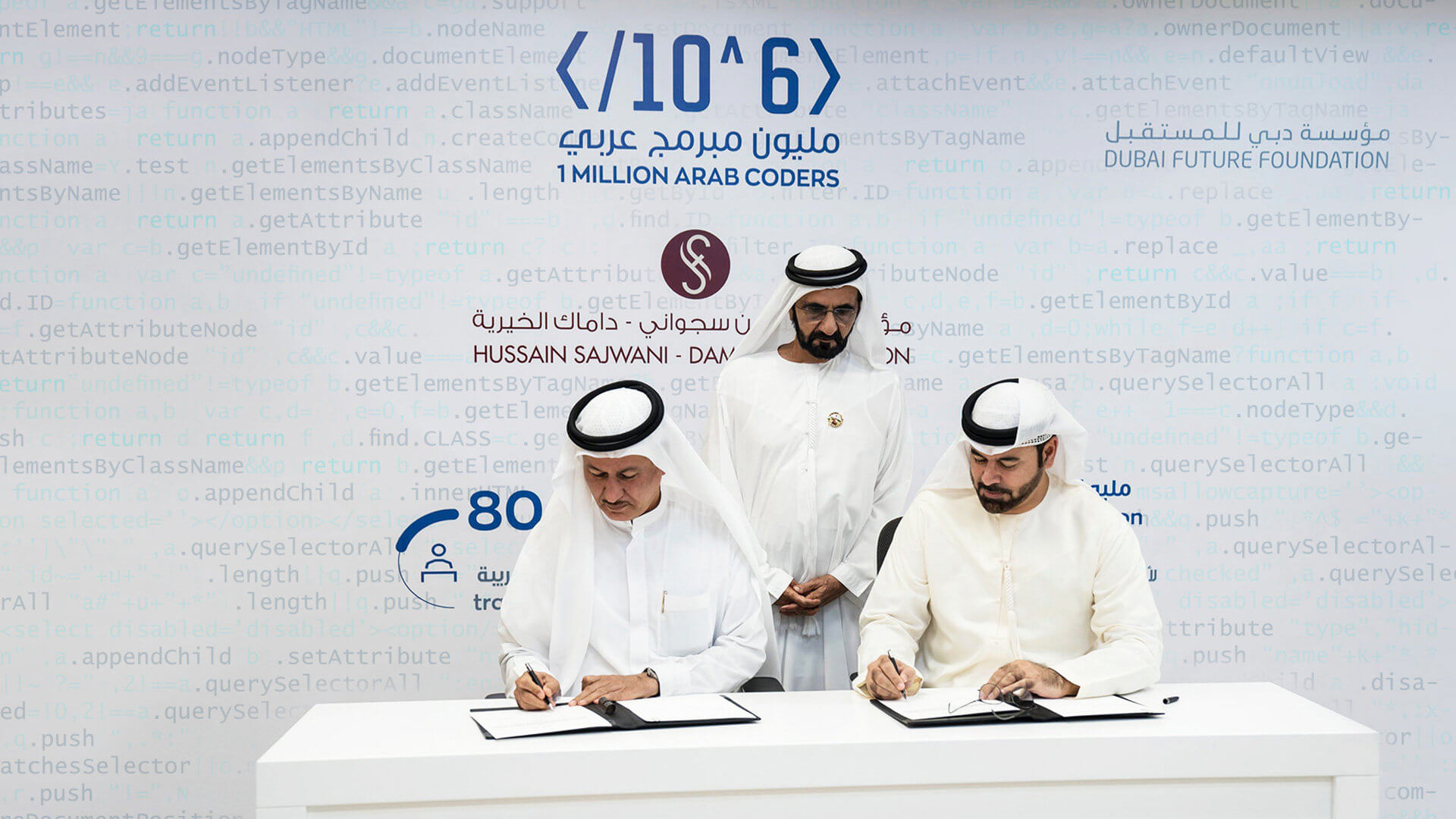
Source: The National
The UAE has launched a new initiative to help train one million young Arabs in the language of the future: computer programming.
Sheikh Mohammed bin Rashid, Vice President and Ruler of Dubai, announced the initiative on Tuesday, in line with the Mohammed bin Rashid Al Maktoum Global Initiatives foundation.
“Coding is the language of the modern era. Our goal is to teach it to one million young Arabs, in order to prepare them now for the requirements needed to excel in the future,” Sheikh Mohammed bin Rashid said.
“It will pave the way for them to participate in the global economy online, from home.”
The three-part approach of the initiative begins with Arab students and tutors registering on the new website, ArabCoders.ae, managed by the Dubai Future Foundation and supported by Udacity, an educational organisation that provides online courses, as well as Middle East recruitment website Bayt.com.
Courses on offer span from website development, mobile interfaces, Android applications and data analyst training.
Applicants will complete several three-month virtual coding programmes with the top 1,000 students selected to receive certificates, scholarships and a chance to compete in a programming contest.
The Coder Challenge will award cash prizes awarded to the top 10 coders, with first place totaling US$1 million (about Dh3.7m) followed by $50,000 for nine individuals. Tutors will also have an incentive with the top four, voted on by students, to receive $200,000 each.
The project comes at a time when the UAE government, education authorities and public and private schools are pursuing a major push in science, technology, engineering and maths (Stem) subjects, seen as crucial to the post-oil knowledge economy.
“Our project is part of the global initiatives to create hope in the region and making a future for the youth in the area,” Sheikh Mohammed bin Rashid said.
“We want to contribute even a fraction of a solution to the problem of unemployment in the Arab world.”
There is a gap in skills and available jobs for youth throughout the Middle East North Africa (Mena) region. The World Economic Forum (Wef) said that 65 per cent of people in Mena are under age 25, yet 27 per cent of this age bracket is unemployed.
“[There is a] profound disconnect between the skills needed by employers and the skills that job seekers believe they need,” Bayt.com said in a report released last year.
The Middle East Skills Gap Survey, in partnership with YouGov, said youth unemployment for the region was around 30 per cent – the highest in the world at more than double the global average. The company conducted more than 5,000 interviews, finding that only two in 10 companies were looking to hire.
Yet the digital world is the job marketplace of the future as well as a disruptor for the current labour force.
Moustafa Mahmoud, 33, from Egypt, began working in some of the world’s largest IT firms. He decided to start his own company, Dubai-based Cognitev which focuses on artificial intelligence digital marketing. But the business idea also had another goal: to help tackle the unemployment rates in the region.
“I felt like our youth, especially in Egypt, deserved the opportunity to work on something very meaningful. Many of our talented engineers and developers were leaving the country – so I wanted to create something that would attract and keep them in the Middle East,” he said. The company has evolved over the past two years to have 40 employees from the region.
Sheikh Mohammed bin Rashid said these projects were imperative for the progression of Mena. “We will not stop launching projects and initiatives to support our Arab communities because the stability of our region relies on it.”